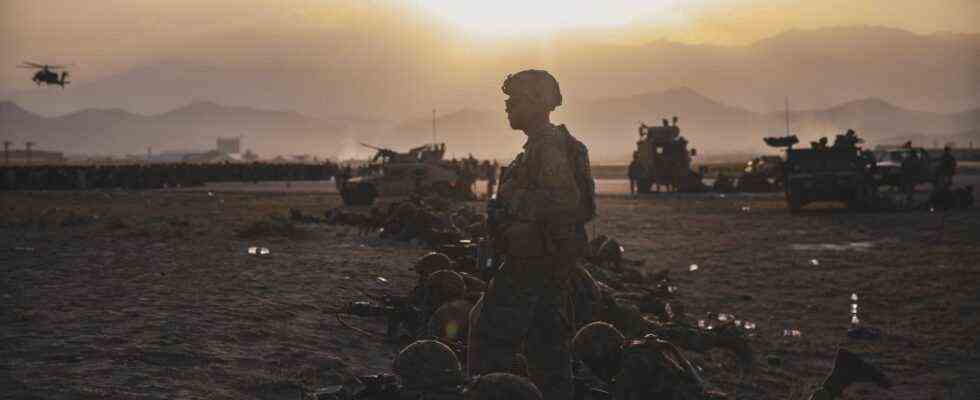As of: 09/28/2021 10:52 a.m.
Secretary of Defense Austin and Chief of Staff Milley are due to speak to the Senate today on the Afghanistan withdrawal. Another topic could be the drone attack that killed ten civilians.
Secretary of Defense Lloyd Austin and Chief of Staff Mark Milley are invited to a hearing in the US Senate today. There they should be asked about the withdrawal of troops from Afghanistan – and may also have to comment on a controversial drone attack.
When deployed with a combat drone, the US Army killed ten civilians shortly before the final withdrawal from Afghanistan. Seven victims of this military strike in Kabul were children. The US Department of Defense later spoke of a tragic mistake.
A mistake, but not an exception, say critics like Annie Shiel. She works for the human rights organization Center for Civilians in Conflict Areas (CIVIC). “You have to take into account that civilian casualties are an integral part of US air strikes. That has been the case in Afghanistan and around the world for the last 20 years – both inside and outside of armed conflict,” says Shiel.
22,000 civilian casualties in the fight against terrorism
The non-governmental organization Airwars accuses the United States of having killed at least 22,000 civilians in US air strikes since 2001 in the so-called war on terror. In Afghanistan there have been more than 4,800 so far.
But after withdrawing from Afghanistan, the US could be even more dependent on military means such as drone strikes. US President Joe Biden announced this in July.
The military and government in Washington are aware of the dangers of these missions. After taking office in January, President Biden called for the strategy of targeted killing of suspected terrorists with drone strikes to be reviewed.
CIA chief: “It’s getting harder to act”
The New York Times reports that Biden had plans to revert to Obama-era rules in areas where the US military rarely attacks. Drone attacks will then be decided centrally and coordinated. In other conflict areas, the responsible commanders could decide more freely, similar to the time of the elected President Donald Trump.
But in Afghanistan, for example, the Taliban’s takeover has completely overtaken all considerations. The Afghan government is no longer available as a partner. From the perspective of the secret services, CIA chief William Burns had already warned in the spring that the withdrawal of US troops would make the situation more difficult. “When the time comes for the US military to leave, it will be harder to gather information and act. That’s a fact,” said Burns.
Critics call for a departure from previous politics
The less information and clarification that is available in order to decide on an operation, the greater the danger for civilians in the conflict area that are not involved. The past 20 years have shown that. Critics of the air strikes, such as Shiel, therefore demand a fundamental departure from the previous policy.
“Any new tactic that tinkers with the borders for the use of lethal force and still allows the use of US military strikes worldwide will continue to put civilians at risk, and continues the previous policy without transparency and responsibility,” said Shiel.
Which path the United States will take in the future could be discussed today in the Senate committee.
Doubts about the “Beyond the Horizon” capabilities of the US military
Torsten Teichmann, ARD Washington, September 28, 2021 8:40 a.m.

